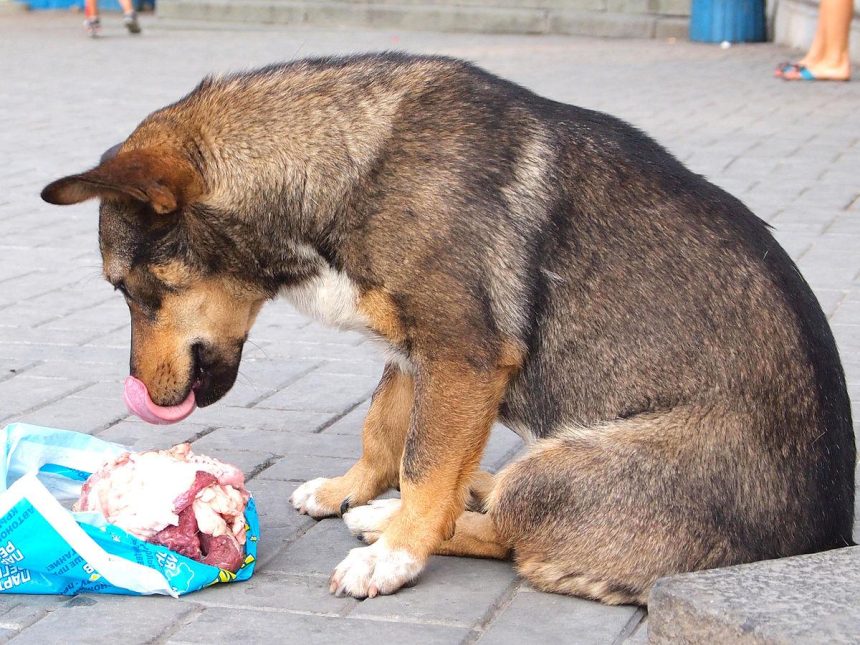In July 2025, Russian lawmakers introduced a series of bills that may criminalize the simple act of feeding a stray dog near a residential building. Under the proposed legislation, fines ranging from 3,000 to 50,000 rubles will be imposed on individuals or organizations who dare to offer food to homeless animals near apartment blocks, schools, clinics, pharmacies, or even parks and playgrounds. In a country facing mounting socio-economic challenges, the Russian Duma has apparently decided that public enemy number one is not corruption, inflation, or failing infrastructure — but an old lady tossing a bone to a hungry dog behind her local grocery store.
Let’s be clear: this is not about safety. This is not about “responsible behavior.” This is about institutionalized cruelty disguised as public order. While the official justification is to “protect citizens from stray animal attacks,” the real message is unmistakable: compassion is now punishable.
A Bureaucracy Without Teeth
One of the main arguments against these measures comes from the lawmakers themselves. Vladimir Burmatov, deputy head of the Duma’s ecology committee, openly stated that the initiative is “unrealistic and unenforceable.” And he’s right. Who will patrol the alleys behind apartment blocks to catch the “criminals” handing out dog food? Will security cameras be installed next to trash bins to identify violators? Will babushkas with heart-shaped biscuits now be surveilled by drones?
Even more absurd is the administrative vagueness. The law mandates that property owners report untagged strays, but doesn’t say how or to whom. No guidelines are provided for determining which dogs have completed sterilization programs. And the Ministry of Natural Resources — the very agency supposed to oversee environmental and animal-related regulations — is not even on board. Their representative called the feeding ban a matter of civil law, not administrative regulation.
The Global Hall of Shame
Russia is not alone in this bizarre crusade. The world is no stranger to grotesquely illogical animal control policies:
- USA (Fort Lauderdale, Florida): In 2014, a 90-year-old man was arrested and fined for feeding the homeless — both human and animal — under a new city ordinance designed to “keep public spaces clean.”
- France (Nice): Local laws prohibit citizens from feeding pigeons on public benches. The rationale? “Preservation of historical architecture.” In reality, it simply criminalizes kindness.
- India (Mumbai): Municipal authorities banned feeding stray dogs near housing societies, but then failed to offer any alternative. As a result, starving dogs have begun forming aggressive packs, proving that neglect is a poor substitute for management.
- Singapore: Even in a nation famed for its meticulous order, feeding stray cats is considered a civic offense in certain districts — yet the government refuses to fund large-scale neutering programs.
What links these cases is not policy sophistication, but moral laziness. These laws outsource responsibility to citizens and penalize them for doing what the state refuses to do: provide humane solutions.
Compassion as Civil Disobedience
Feeding a hungry animal is not a crime — it is a basic human impulse, one that should be protected, not persecuted. Instead of outlawing kindness, governments should be investing in scalable spay-and-neuter programs, transparent adoption systems, and educational campaigns promoting coexistence. Targeting ordinary people who feed strays does nothing to address the root of the problem — it merely shifts blame onto those who care.
In fact, these types of laws may achieve the opposite of their intended goals. By criminalizing citizens who report or care for animals, the state discourages cooperation and drives the problem underground. Fewer reports, fewer sterilizations, more untagged dogs. The result: chaos.
Final Thought
The Russian initiative is not only counterproductive — it’s emblematic of a broader global trend where authoritarian impulses dress up as public order. These laws reveal not just how states view animals, but how they view their people: not as partners in civil society, but as obstacles to be fined, punished, and regulated.
In the end, a society is judged not by how it treats its powerful — but by how it treats the voiceless. Right now, both animals and citizens deserve better.











